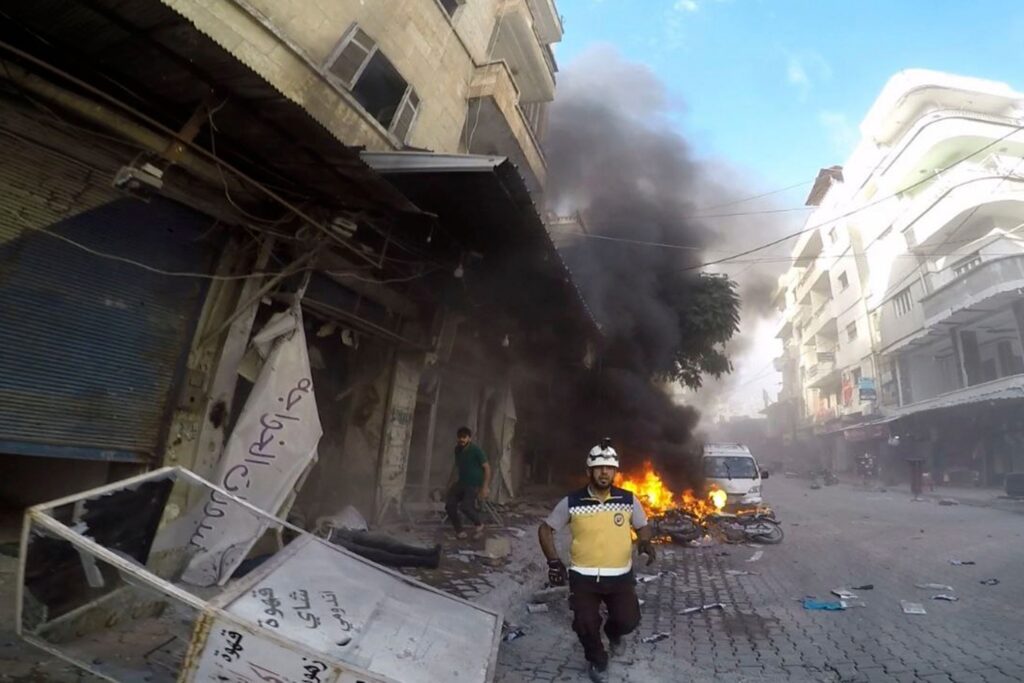
United Nations humanitarian officials sounded an alarm Thursday over a humanitarian crisis in rebel-held northwestern Syria, warning that intense shelling by government forces displaced almost 70,000 people in recent weeks.
The Syrian government, backed by Russia, pounded the country’s northwest this month, especially after a drone attack targeted a military college graduation ceremony in the heart of the government-held city of Homs. At least 89 officers and civilians were killed, making it one of the deadliest attack in the war-town nation in years.
Humanitarian agencies and human rights organizations have reported Syrian and Russian strikes hitting hospitals, schools, and other civilian infrastructure as Syria endures the 13th year of a conflict that has killed a half-million people.
“We’re at the most significant escalation of hostilities since 2019,” David Carden, the U.N. deputy regional humanitarian coordinator for Syria, said after meeting with displaced Syrians living in temporary shelters “What they want above all is to return home to their homes, but right now they do not feel safe to do so.”
The vast majority of the 4.5 million people living in Idlib and northern Aleppo provinces rely on humanitarian aid to survive, and almost half live in displacement camps. Northwestern Syria is controlled by the al-Qaeda-linked Hayat Tahrir al-Sham in Idlib province and by Turkish-backed groups in northern Aleppo province.
Carden and other U.N. officials toured the encampments where millions of Syrians are staying. He was accompanied by Oliver Smith, senior operations coordinator the U.N. refugee agency UNHCR and Rosa Crestani, the head of the World Health Organization office in Gaziantep, Turkey.
Crestani said WHO received 23 reports of strikes impacting health facilities, while others shut down fearing they would be hit, too.
“I really hope that the services can restart, and we really ask everyone to not target or not do indiscriminate shelling on civilians, or medical facilities or ambulances,” Crestani told The Associated Press after visiting Sham Hospital near the city of Sarmada.
___
Associated Press writer Kareem Chehayeb contributed from Beirut.




